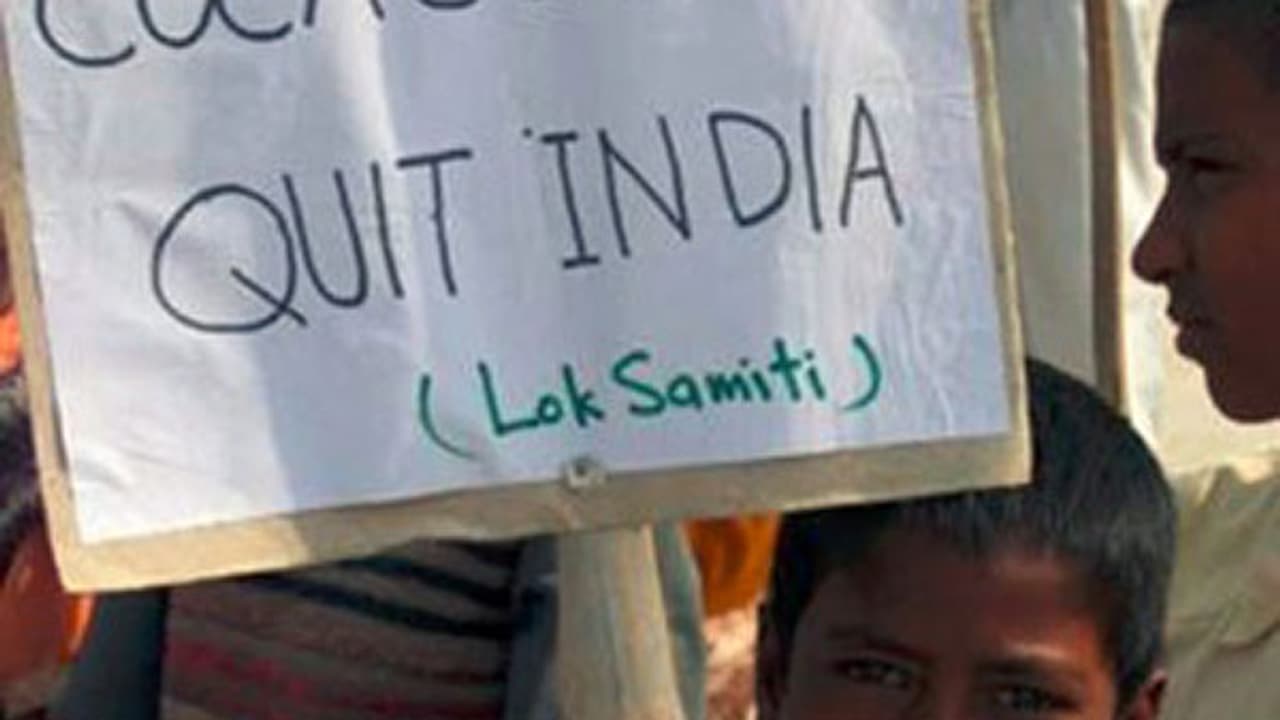Even if the new version of the bill scrapes through the Centre’s scrutiny (which is highly unlikely) the compensation for the Plachimada people would still be a distant dream

When Kerala Assembly unanimously passed the Plachimada Coca-Cola Victims Relief and Compensation Claims Special Tribunal Bill in February 2011, the people of Plachimada felt that their years David-Goliath fight against the water guzzling soft drink giant has won at last. The landmark bill, based on the conviction that the polluter must pay, proposed to set up a tribunal to try disputes for compensation regarding the water exploitation and pollution by the Hindustan Coca-Cola Beverages plant at Plachimada.
The bill was drafted as per the recommendations of a high-level committee appointed by the Kerala government in 2010. The panel had estimated that the residents, most of them Dalits and tribals, suffered a loss to the tune of Rs.216 crore due to the water exploitation and pollution by the plant. The bill was seen as a victory for the agitation which won global attention and forced the plant to close down in 2005.
The bill was drafted as per the recommendations of a high-level committee appointed by the Kerala government in 2010.
But dashing the expectations of the people of Plachimada, the bill was returned by President of India without giving assent in February 2016, after a lapse of five years!
Now, the Kerala Assembly is planning to reintroduce the bill, with 'some changes.' Kerala Speaker P Sreeramakrishnan said he had discussions with the government and Chief Minister Pinarayi Vijayan to reintroduce the Bill with changes and it is likely to be taken up in the budget session of the Assembly which is underway. The House has the right to reintroduce a bill if it was returned by the Centre without giving assent,” he said.
Plachimada Tribunal Bill completes a circle:
- 24 February 2011: Kerala Assembly unanimously passes the Plachimada Coca-Cola Victims Relief and Compensation Claims Special Tribunal Bill in February 2011.
- March 2011: Kerala Governor sends the bill for Presidential assent via the Ministry of Home Affairs at the end of March.
- 13 April 2011: The Home Ministry forwards the bill to other ministries for comments.
- Ministries of Agriculture, Rural Development, Water Resources, Food Processing Industries and the Dept of Justice under the Ministry of Law approve the bill.
- 1 December 2014: after sitting on the bill for long, Home Ministry urges Kerala to scrap it.
- February 2016: President of India returns the bill without giving assent
- February 2017: Kerala Assembly plans to reintroduce the bill!
It is interesting to note that the President did not mention reasons for not giving assent to the bill. But apparently, the objections of the Home Ministry had a big say in returning the order. The Home Ministry had earlier questioned the state Assembly’s competence in bringing such a bill.
“The State legislature does not appear to possess the necessary legislative competence to enact a law for constituting a tribunal to adjudicate the matters arising out of the violations of the law executed by Parliament under Article 253 of the Constitution, subject matter of which does not fall under the subject matter specified in list-2 or list-3 of the seventh schedule,” a letter by Home Ministry said quoting the Ministry of Law.
In a letter to the Centre, S Faizy, the environment expert in the high-level panel that proposed the tribunal bill, argued that the state had all right to make the legislation. “Bill is in fulfilment of the State's obligation regarding Article 21 as interpreted by the Supreme Court and based on the polluter pays principle that has become an integral part of our jurisprudence. The enactment of this law will remain a critical contribution in enforcing a legal regime for the sustainable management of the scarce natural resources of the country as a public resource,” he opined.
It was unfortunate that the Home Ministry chose to entertain the opinion by the Cola company’s lawyers on the bill. It is a strange move since there is no provision in the Presidential assent issuing process to entertain an intervention of a private sector company, said Faizy, slamming the Centre for allegedly playing fiddle to the multinational soft drink giant.
Now the question is whether the bill would pass the test of Presidential Assent if it were reintroduced at all. The Speaker stated that the bill would include some changes. But he did not make any suggestions on the changes he meant.
The centre was not objecting to any particular provision in the bill but was raising the question of the very competence of a State Assembly to make such a legislation. Legislation on the violation of article 253 that does not come under state list, it said. By invoking the article 253, the Centre was suggesting that the state has no business in the matter. It also stresses that the soft drink giant was here as per international agreement (s) or treaties and hence it does not come under the jurisdiction of the state.
The vital question is how the state would negotiate this legal hurdle,reintroduce the bill and get the Presidential assent.
Even if the new version of the bill scrapes through the Centre’s scrutiny (which is highly unlikely) the compensation for the Plachimada people would still be a distant dream as any claim would land the poor people in a labyrinth of legal troubles.
